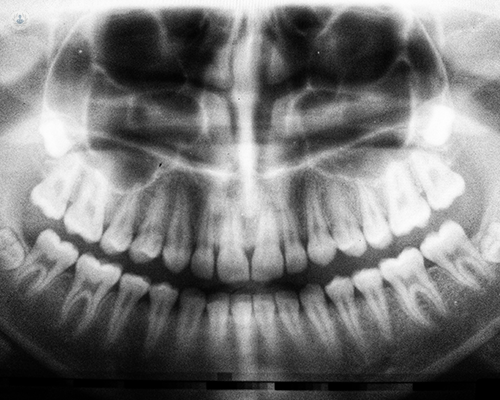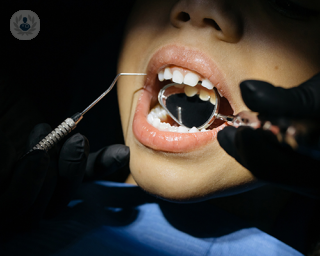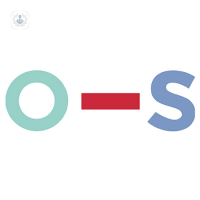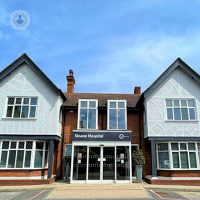Impacted tooth
Mr Luke Cascarini - Oral & maxillofacial surgery
Created on: 10-28-2015
Updated on: 06-06-2023
Edited by: Jay Staniland
What is an impacted tooth?
A tooth is referred to as ‘impacted’ when it fails to fully erupt and remains fully or partially inside the gums. This may be due to a lack of space and result in the tooth becoming stuck or growing at the wrong angle. Most frequently, it’s the wisdom teeth that become impacted and these are the third group of molars which grow at the back of your gums - which are the last teeth to erupt.
A tooth that doesn’t fully erupt can trap food, plaque and other debris in the soft tissue around it, which can result in inflammation and gum sensitivity. Furthermore, an impacted tooth can cause bad breath from pericoronitis.

Prognosis of an impacted tooth
There is a possibility that an impacted tooth will not cause complications and therefore, will not need any treatment. Some patients will need the condition treated due to symptoms.
Symptoms of an impacted tooth
An impacted tooth may show the following symptoms:
- bad breath (halitosis)
- difficulty opening your mouth
- pain or tenderness in the gums or jaw
- prolonged headache or jaw pain
- inflammation of the gums in the area of the impacted tooth
- inflammation of the lymph nodes in the neck
- unpleasant taste when biting near the affected area
- visible space in the area where the tooth did not come out.
Medical tests to diagnose an impacted tooth
The dentist will look for inflamed tissue in the area of the impacted tooth and check if nearby teeth have been pushed out of position. Dental x-rays (radiographs) provide your dentist with a clear view of the teeth and can confirm the presence of impacted teeth.
Causes of an impacted tooth
There are several causes:
- It may be that the area is simply crowded and there is not enough space for the tooth to erupt.
- The jaw may be too small to accommodate the teeth in question.
- The tooth could grow at the wrong angle and tilt and/or twist when trying to erupt.
Can impacted teeth be prevented?
The main recommendations to prevent impacted teeth are the following:
- Schedule regular dental check-ups (once or twice a year – your dentist can advise you on the best frequency).
- Talk to the dentist about if you have potential wisdom teeth that are likely to become impacted.
- If you do have signs of an impacted tooth, seek dental care while it’s in the early stages.
Treatments for an impacted tooth
In cases where the impacted tooth is somewhere in the front of the mouth, braces may be recommended to help accommodate the tooth so that it grows in the correct position. Pain relievers can help relieve any discomfort, as well as mouth rinses with warm water and salt or those available in pharmacies to soothe the gums.
If a surgical tooth extraction is required, the surgeon will make an incision into the gum to reach the bone and tooth. They may be able to remove the whole tooth in one piece or have to remove it in pieces. In cases where the tooth is infected, antibiotics will be prescribed. The operation is performed under local anaesthetic, intravenous sedation or general anaesthetic, as recommended by the dentist or oral surgeon.
Which specialist treats an impacted tooth?
Your dentist may remove an impacted tooth or refer you to an oral surgeon to perform the procedure.










